
During their confabs with Capitol Hill lawmakers last week, the 500 or so homebuilders who trekked to Washington, D.C., to plead their case for easier credit probably didn’t have to elaborate all that much on the pressures they’re facing as they try to position themselves for economic recovery.
Two key members of the House of Representatives, North Carolina Democrat Brad Miller and Ohio Republican Patrick Tiberi, who both visited the National Association of Home Builders’ National Housing Center for the NAHB Legislative Conference, already support restoring homebuilder access to acquisition, development and construction (AD&C) loans. Tiberi, chair of the House Ways and Means Subcommittee on Select Revenue Measures, says he supports regulatory changes that would create a better lending climate for homebuilders, who have complained that increased equity requirements for existing loans, and overly conservative appraisals and requirements for loan modifications, have made it difficult for builders to regain their footing.
Miller – who last year supported H.R. 6191, a now-dormant amendment to the Small Business Jobs Act of 2011 that was designed to include certain construction and land development loans in the definition of small-business lending – also says he’s committed to finding a remedy for the homebuilder credit crunch. What remains to be seen, obviously, is whether there’s enough political will elsewhere in the House and Senate to tinker with a number of banking regulations, including a risk-retention provision of the Dodd-Frank Act that requires lenders to retain at least 5% of the value of their asset-backed loans.
Springtime in the housing market
With the National Association of Realtors reporting a 9.6% drop in existing-home sales for February (median price: $156,000, the lowest since February 2002), and the announcement by the Treasury Department that it will be selling about $10 billion a month of the $142 billion in mortgage-backed securities it acquired in 2008 and 2009 from Fannie Mae and Freddie Mac – a move that could cause mortgage rates to edge up slightly – housing market observers might give up hope for an at least decent spring sales season.
But as a recent Wall Street Journal story points out, the sales-price situation and currently low mortgage rates – and, for that matter, the prospect of mortgage-rate increases – actually could get prospective homebuyers off the fence and into purchase contracts.
“The job market is getting better and that will make people feel more confident about their income-earning prospects,” David Berson, chief economist for mortgage insurer PMI Group, told the Journal. “You need that confidence to buy a house. Household formations are also very important…. Kids may have moved back in with their parents, or two people may have moved in together, because of job concerns. Now they can move into their own place.”
Added Moody’s Analytics’ chief economist, Mark Zandi: “Few think mortgage rates are going lower. It’s more likely they will be 6% than 4% next spring. This lights a fire under buyers.”
Fine Homebuilding Recommended Products
Fine Homebuilding receives a commission for items purchased through links on this site, including Amazon Associates and other affiliate advertising programs.

Handy Heat Gun

Reliable Crimp Connectors

8067 All-Weather Flashing Tape

The National Association of Home Builders played host last week to its annual Legislative Conference, during which about 500 builders visited Capitol Hill to meet with members of Congress.
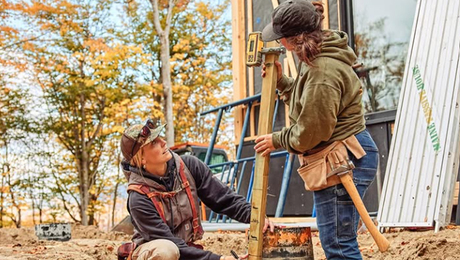



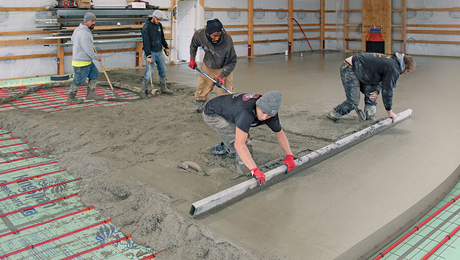

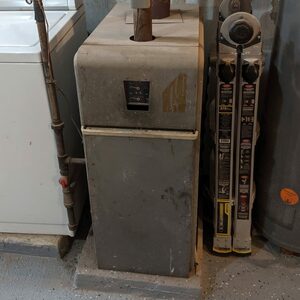

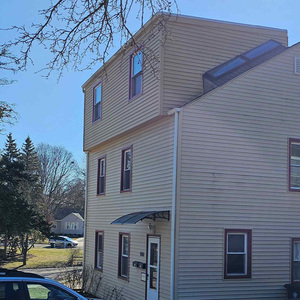
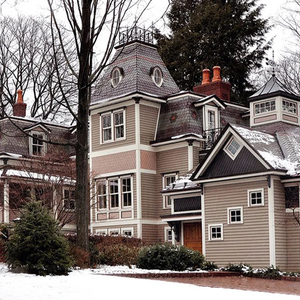

















View Comments
I see this type of news all over the place these days. Homebuilding is up, then down, then down more, up a little, back down, etc. It's like we're judging our economy on a micro scale, dependent on a handful of homebuilding companies.
But how can I have any sympathy for home builders when we are surrounded by so many vacant houses? We already have too many houses - that's the problem. But they want to build more. And it's not like they were building many quality structures during the boom, that's how they were all making their hand-over-fist profits... cheap, cheap, cheaper. They just want to get back to making their easy money.
I'm on the other side. I've been fixing their blunders for over 15 years; remodeling houses from practically every building boom in american history.
If you ask me, the problem with the housing market is that even poorly built houses last too long. If we were talking cars, we would be able to predict that after 10-20 years all the lesser quality cars would be headed to the scrap yard and replaced with a better quality new model. But low quality houses can stand for 50-100 years before they are finally remodeled or replaced. In most circumstances, just because a new house is built, doesn't mean an old house is removed or repaired - just added to the pile of glut. Still the remodeling market is greatly overshadowed by the new build market.
It doesn't make sense to me.